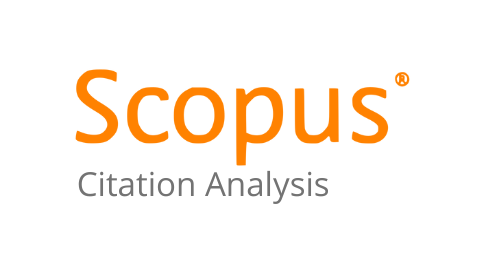The Effect of Method Pedagogy and English Teaching Learning
Keywords:
ELT instruction, Pasca- method , Methodology PedagogyAbstract
The end of the 20th century, methodology was no longer the determining factor of whether language teaching was successful or unsuccessful in mainstream settings. In the 1990s, some ELT practitioners, teachers and theorists expressed their unhappiness with approaches and techniques when the concept of method was questioned. The purpose of this study is to find out how methodology pedagogy affects English teaching strategies. This research was A literature study research methodology is used in this investigation. In a literary study, information is gathered through reading and taking notes, and then the information is processed using the predetermined concepts. and do a study of theories in order to identify a concept using the approach of classifying the theory and research into a concept after studying the categorical portion of the theory. The findings show that learning a language invites educators and learners to explore the vast and intriguing world of limitless opportunities. In order to travel a satisfying path for both teachers and learners in the post-method era, educators must be aware of specific ways in addition to the essential elements mentioned above. Teachers and students need to be active participants in the creation of knowledge as a result of the transition from method-based to post-method classroom practices. Teachers should encourage students to explore their identity, context, emotional and cognitive factors, and ELT methods, rather than dictating their actions. This approach allows for better decision-making and allows for repeatability in case of mistakes.
References
Ahmadian, M., & Erfan Rad, S. (2014). Postmethod era and glocalized language curriculum development: A fresh burden on language teachers. Journal of Language Teaching & Research, 5(3)
Akbari, R. (2008). Postmethod discourse and practice. TESOL quarterly, 42(4), 641-652. Allwright, R. L. (1991). The death of the method (Working Papers No. 10). Lancaster, England: The University of Lancaster. The exploratory Practice Centre.
Arıkan, A. (2006). Postmethod condition and its implications for English language teacher education. Journal of Language and Linguistic Studies, 2(1), 1-11.
Audina, Y., Zega, N., Simarmata, A., Situmeang, K. V., & Tarigan, S. N. (2020). An analysis of teacher's strategies in teaching reading comprehension. Lectura: Jurnal Pendidikan, 11(1), 94-105.
Bartlett, L. (1990). Teacher development through reflective teaching. Second language teacher education, 202-214.
Bell, D. M. (2003). Method and Postmethod: Are They Really So Incompatible? TESOL Quarterly, 37(2), 325. https://doi.org/10.2307/3588507
Brown, H. D. (2000). Principles of language learning and teaching (Vol. 4). New York: Longman.
Cambridge university press.
Chen, M. (2014). Postmethod Pedagogy and Its Influence on EFL Teaching Strategies. English Language Teaching. Vol. 7, No. 5. ISSN 1916-4742 E-ISSN 1916-4750. Published by Canadian Center of Science and Education
Cubukcu, F. (2007). An investigation of reading strategies employed by trainee teachers. GEMA Online Journal of Language Studies, 7(2).
Doughty, C. J., & Long, M. H. (Eds.). (2008). The handbook of second language acquisition. John Wiley & Sons.
Ellis, R., & Ellis, R. R. (1994). The study of second language acquisition. Oxford University. Fat, J. (2015). The Relationship between Post-method Pedagogy and Teacher Reflection : A Case of Iranian EFL Teachers. 2(4), 305–321.
Fati'hi, J. Ghaslani, R. Parsa, K. (2015). The Relationship between Post-method Pedagogy and Teacher Reflection: A Case of Iranian EFL Teachers. Journal of Applied Linguistics and Language Research. pp. 305-321. Vol. 2 Issue 4.
Freire, P. (1970). Pedagogy of the oppressed (MB Ramos, Trans.). New York: Continuum, 2007
Frischknecht, R., Editors, N. J., Althaus, H., Bauer, C., Doka, G., Dones, R., Hischier, R., Hellweg, S., Köllner, T., Loerincik, Y., & Margni, M. (2007). Implementation of Life Cycle Impact Assessment Methods. 3.
Harmer, J. (2001). The practice of English language teaching. London/New York, 401-405.
Hosseini, S. A., Rashidi, N., & Rasti, A. R. (2015). Postmethod pedagogy: Ally or foe. International Journal of English Language, Literature, and Translation Studies, 2(3), 322-331.
Illich, I. (2000). Bebaskan masyarakat dari belenggu sekolah. Yayasan Obor Indonesia.
Khany, R., & Darabi, R. (2014). ELT in Iran: Reflection of the principles-based and post- method pedagogy in language teaching. Procedia-social and behavioral sciences, 98, 908-916.
Khatib, M., & Fathi, J. (2012). Postmethod pedagogy and ELT teachers. Journal of Academic and Applied Studies, 2(2), 22-29.
Kincheloe, J. L. (1993). Toward a critical politics of teacher thinking: Mapping the postmodern. Westport, CT: Bergin & Garvey.
Kumaravadivelu, B. (1994). The postmethod condition:(E) merging strategies for second/foreign language teaching. TESOL quarterly, 28(1), 27-48.
Kumaravadivelu, B. (2001). Toward a postmethod pedagogy. TESOL quarterly, 35(4), 537- 560.
Kumaravadivelu, B. (2003). A postmethod perspective on English language teaching. World Englishes, 22(4), 539-550.
Kumaravadivelu, B. (2006). Dangerous liason: Globalization. TESOL In an age of empire, 1. Maduwu, B. (2016). Pentingnya pembelajaran bahasa Inggris di sekolah. Warta Dharmawangsa, (50).
Maisari, Y. (2024). The Role of Teachers in Increasing Interest in Learning Arabic in Madrasah Aliyah 6 Aceh Besar. Journal of Society Innovation and Development (JSID), 5(2), 161-170.
Mus, I. (2024). Poetry Kama Nasya’Works of Samih Al-Qasim (Analysis of The Semiotic Riffaterre). Journal of Society Innovation and Development (JSID), 5(2), 140-150.
O'Connor Jr, T. W. (2000). Public school teachers' discretionary participation in continuing professional development: perceptions, influences, and action. The Pennsylvania State University.
Oxford, R. L. (2003, October). Language learning styles and strategies: An overview. Oxford: Gala.
Padila, J. E. & Padila, C, A. (2021). Automated Teachers No More: A Closer Look into Teachers' Role in Postmethod Era. Silliman Journal. Vol. 62, No.1
Pani, S. (2004). Reading strategy instruction through mental modelling. ELT journal, 58(4), 355-362.
Purkey, S. C., & Smith, M. S. (1983). Effective schools: A review. The elementary school journal, 83(4), 427-452.
Rahman, F. (2023). Caregiver's Interpersonal Communication Approach to The Elderly. Journal of Society Innovation and Development (JSID), 5(1), 116-123.
Reinharz, S., & Davidman, L. (1992). Feminist methods in social research. Oxford University Press.
Richards, J. C., & Rodgers, T. S. (2014). Approaches and methods in language teaching.
Suhaimi (2022). Mastery Of Basic Educational Sciences (Pedagogic) As The Main Element Of Teacher Teaching Quality
Tasnimi, M. (2014). The role of teacher in the postmethod era. International Journal of Multi Disciplinary Research, 1(3).
Tasnimi, M. (2014). The role of teacher in the postmethod era. International Journal of Multi Disciplinary Research, 1(3).
Tiara, A. (2022). Society: Solutions for Building Ethics Communication on Social Media. Journal of Society Innovation and Development (JSID), 3(2), 013-017.
Zikrullah, M., & Azhari, A. (2024). The critical thinking research trend in Indonesia’s language education journals. Diksi, 32(1).
Published
How to Cite
Issue
Section
License
Copyright (c) 2023 Ikram Senen

This work is licensed under a Creative Commons Attribution-ShareAlike 4.0 International License.

















